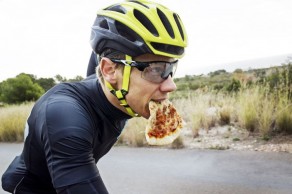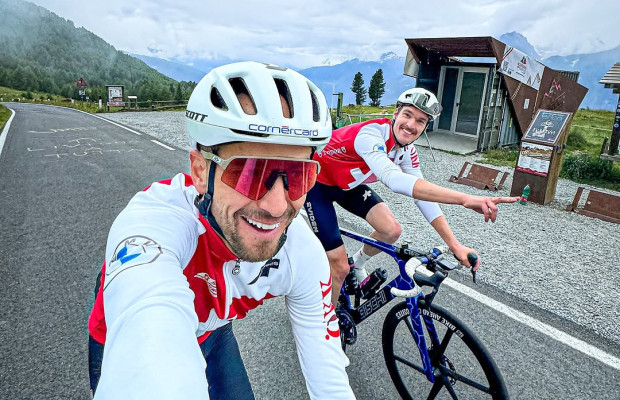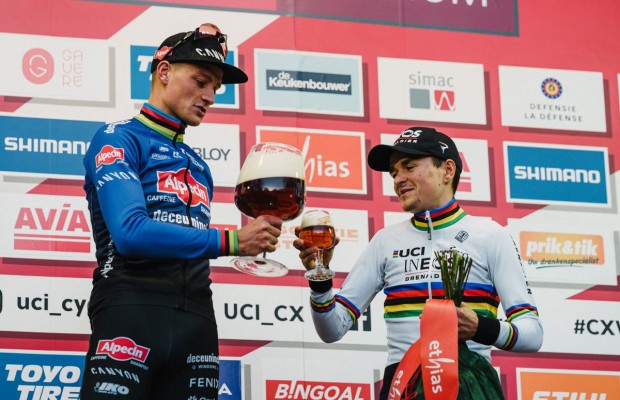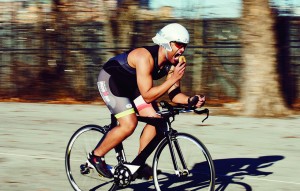Is it possible to lose weight without dieting? Nutritional keys to try it
Perhaps the headline of this article will catch your attention, but it is wrong to base yourself only on weight to know if you have improved your body composition, since the number on the scale only expresses the total amount of body mass, without differentiating water, fat, muscle mass and bone mass.

Lose weight or improve performance?
With the headline “is it possible to lose weight without dieting?” we simply wanted to draw attention, because the correct thing would be: is it possible to “lose fat or improve body composition” without following a nutritional strategy?

RECOMENDADO

Is it possible to do base training when time is short?

Alcoholic beverages with the fewest calories

What would you do if you won the lottery? This cyclist bought himself a €20,000 bike

Tips for cycling in the rain

25 cycling gifts ideas to get it right

When do helmets have to be changed? Do they have an expiration date?
Of course it is possible to lose weight without “dieting” by increasing the daily caloric expenditure through daily movement activity, called NEAT, or increasing training time and thus obtaining a sufficiently high caloric deficit to achieve a total weight loss. Now, does the athlete simply aspire to lose weight or seek an improvement in body composition to achieve better sports results?
If the goal is to improve performance, it will be necessary to adapt the diet to your goals, personalizing the guideline to body composition, daily activity and training, among other factors. Remember that what we are looking for is the loss of ballast weight (fat).
Another determining factor to reduce body fat is rest, recurrently forgotten by many. It is essential for hormonal reasons, as it will influence sports performance and adaptations and will partly determine the choice and amount of food to ingest.

The type of training will also be determinant in the improvement of body composition. For this, it would be ideal for a coach to advise you on training and focus it on what you want to achieve.
And as for nutrition, the ideal would be to plan it with the help of a qualified sports dietitian-nutritionist who personalizes the guideline to your individual characteristics and body composition, with the aim of obtaining the desired result.
Let's go to practice that I'm sure you're interested in:
- Yes, we are going to have to make a caloric deficit, reducing processed foods and if you already follow a diet based on “real food” it is possible that we reduce the intake of carbohydrates, increasing the daily amount of protein foods and healthy fats
- Not all carbohydrates have the same impact on our body, so, although vegetables, vegetables and fruits are part of this group of foods, it will be important to increase their intake to obtain the improvement of body composition, since they are foods with a high nutritional density, which will provide volume to the dishes and satiety due to their high fiber content.
- Drink enough water throughout the day, make sure you keep your urine clear, as dehydration can be confused with hunger. It is also important to avoid any soda or alcoholic beverage. Vegetable broths, infusions and coffee will be suitable drinks.
- Avoid simple sugars or foods that contain them (sugar, honey, agave, quince, jam, ) outside the intake before or after training.
- Avoid ultra-processed foods (pastries, cookies, salty snacks, ready-made supermarket dishes, sauces, fatty sausages, breakfast cereals, chocolate bars, sugary dairy desserts, etc)
- Include at least in three daily intakes quality protein foods (eggs, white meat, fish, dairy, legumes or their derivatives and/or raw or toasted nuts). Protein will help you maintain muscle mass and keep you satiated.
- Also add healthy fat like olive oil, avocado, nuts, blue fish, 99% chocolate, etc
- And as a last and very important point, protect the training with the intake. The caloric drop and the reduction of carbohydrates could negatively affect performance, so make a high carbohydrate intake 1h before training (bread, banana, cornflakes, etc.) and prioritize a quality protein just at the end of the effort (whey protein powder, 0% beaten fresh cheese, egg, etc.)
These tips are very general, but they can help you improve dietary habits, and at the same time, reduce body fat and improve health. And remember, weight is not indicative of improved body composition.
What do you prefer, train more or eat less? We read you on our social networks!